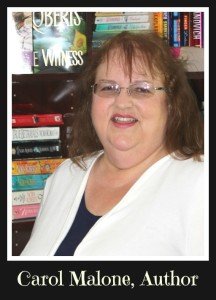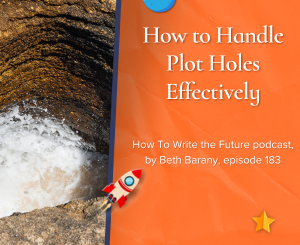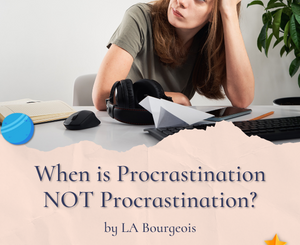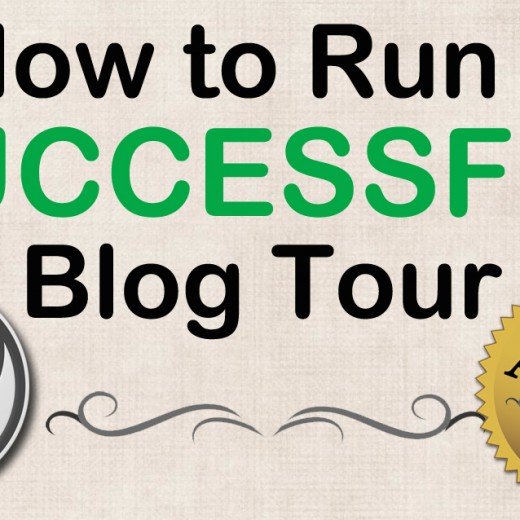Are You Struggling With The Dreaded Writer’s Disease? by Carol Malone
Please welcome author and teacher/book coach in training Carol Malone. Today she’s sharing her article regarding the dreaded writer’s disease known as “Writer Envy.” She’ll speak to what it means and how to subdue it. Enjoy!
***
How many times have we read a book, or a short story, or a terrific blog post and thought to ourselves, “man, this is great. I wish I’d written it.” I do that all the time.
I belong to a local county writer’s group and last month our speaker mentioned he suffered from an affliction called, “Writer Envy.” The man, an author and screenwriter, had one of his screenplays recently produced as a movie and another is currently in production. He said that at one time or another, most all authors suffer from “Writer Envy.”
What is “Writer Envy”?
“Writer Envy” happens to the best of us when we envy the success of other writers or allow the success of others define us as a writer. Our screenwriter guest once complained to his wife of the talents and accomplishments of a contemporary. She told him the other author was successful because “she does the work. You don’t do the work.” His wife added this thought, “There are no shortcuts to success.”
I freely admit I have suffered and still suffer “Writer Envy.” I wanted the success without the willingness to put in the long hours and difficult work to achieve it. One particular instance was when a friend asked me to edit her story for her so she could enter our group’s contest—the same one I was entering. She won and I didn’t. Ask me if I felt “Writer Envy”? It’s tough watching other writers succeed when we aren’t quite where we’d like to be, or it appears they steal our thunder by using our gracious service to help them.
I wanted to learn more about this churning, bubbling disease that afflicted me, so I posted a survey to writers from a cross section of Facebook. I told them I was looking for some help, and that I was writing an article about professional writer’s envy. I asked them the following questions:
- What are the signs that someone is envious of a peer?
- Have you suffered envy of another author?
- How did you handle the enviousness?
- Jealousy is something other than envy—like the fear of losing something. What are your thoughts about the difference between jealousy and envy?
Here are some of their answers:
Author Merillee: I have suffered from the plague of envy, I will admit. Typically it starts with something like, “Why did they get that when I have struggled so hard for it,” as if they have not earned what they have received. Perhaps we feel we are better at “it” than they are, though that is more pride than envy. Sometimes it is too easy for us to see the success and ignore the struggle someone faced to get there, the pain and challenges they faced along the way. When I take the time to know the other person, I often find that they have struggled, just as I am, and those feelings of envy change to find a source of inspiration in the other. On the other hand, sometimes life does just seem to come easy to some, too easy, and it is easy to feel that envy. But in those moments, I try to remember all that I have learned in the struggle, all that I have learned about myself along the way. Would I really give all that back? No. Not even if it made life “easy.” Easy is overrated anyway.
Author Allison: I think a big chunk of professional envy is buried by the person acting on it. I never want to admit to myself that’s why I “hate” the person’s work, when really it’s great but for that underlying reason I WANT to hate it.
 Author Brian: Every time I feel jealous, I think of this [Dilbert] comic. Jealousy almost always (for me) stems from the (incorrect) thought that another’s success diminishes my chances of succeeding. Which is, of course, stupid. I think a sense of “Since X succeeded, I must be a failure” (that diminishment) always accompanies jealousy or envy.
Author Brian: Every time I feel jealous, I think of this [Dilbert] comic. Jealousy almost always (for me) stems from the (incorrect) thought that another’s success diminishes my chances of succeeding. Which is, of course, stupid. I think a sense of “Since X succeeded, I must be a failure” (that diminishment) always accompanies jealousy or envy.
Author Angela: I once read a book by Kate White, former editor-in-chief of Cosmopolitan, where she said that the best thing to do with envy is let it point you to where you want to go.
So how do we point the “Writer Envy” to the place where we want to go?
On The Her Stories Project—every woman has a story blog, Jessica Smock answered a letter regarding writer’s envy and gave us possible insight into where we want to go with our envy:
Could envy possibly be helpful?
In A Writer’s Guide To Persistence: How to Create a Lasting and Productive Writing Practice, author Jordan Rosenfeld dedicates an entire chapter to envy. She says, “Focusing on what others have is a form of procrastination and distraction from your own writing.” She suggests that when you’re feeling jealous of someone it helps to write down five steps it would take to get in a similar position to that person. We’re usually more jealous of the achievement than the person. I especially like her advice to reframe the envy into something useful. She writes, “Envy is a signpost pointing you toward what you really want.”
Nina also said, “Be gentle with yourself for feeling envious, but be vigilant about keeping yourself from acting on it. Nobody, including your friend, can blame you for feeling jealous. It’s what you do with the envy that matters.”
What does it mean to be “gentle without yourself”?
Anne Lamott, in her book, Bird by Bird said: “…, it may help to remember this great line of Geneen Roth’s: that awareness is learning to keep yourself company. And then learn to be more compassionate company, as if you were somebody you are fond of and wish to encourage. I doubt that you would read a close friend’s early efforts and, in his or her presence, roll your eyes and snicker. I doubt that you would pantomime sticking your finger down your throat. I think you might say something along the lines of, ‘Good for you. We can work out some of the problems later, but for now, full steam ahead!”
I adore this quote from Julia Cameron in her book, The Artist’s Way, “Remember, your artist is a child. Find and protect that child. Learning to let yourself create is like learning to walk. The artist child must begin by crawling. Baby steps will follow and there will be falls…” We most often compare our yecchy first offerings with the completed and perfected works of the masters. Don’t let that happen. Julia ended with, “progress, not perfection, is what we should be asking of ourselves.”
So how do we get rid of the “Writer Envy,” or should we?
We are not always the best judge of what makes us unique and special, so we often misjudge our own talent. We doubt out abilities and these doubts lead to a feeling of self-worthlessness. And it’s these feelings of worthlessness that appear to grasp hold of the tendrils of envy and hang on tight. Envy is safe and warm and keeps us from putting ourselves out there and feeling vulnerable.
It seems as though we believe there is only so much writing success to go around, that someone else—someone more talented is sucking up all the attention, getting all the accolades, and making all the sales. But the success of others really has no bearing on our own. There is enough to go around. We just need to believe that success is within our grasp.
I’ve heard of writers who, because of the success of others and their subsequent envy, use that heavy emotion to spark their dedication and they finish their books and publish them. They let envy serve them because they used it in a good way—as motivation, not a drag or an excuse to fail or worse—do nothing.
“Ask yourself whether feeling jealous, at the moment when the green-eyed monster strikes, is actually helping you avoid some more uncomfortable anxiety you might feel.” Robin Black from her article “The Green-Eyed Writers; On Literary Envy.”
Robin also said, “Try to act as if you are not jealous. Even though you are. Do something nice for the person who is unwittingly and unintentionally making you feel bad. Post her good news on Facebook. Or tweet it into the universe. Not for her, not at first; but for you. […] but in the interest of your own psychic comfort.”
Most experts I’ve read from and some of my author friends say a little envy is a good thing if it pushes us to do better. Write it out—write out how thankful you are for the talents of others that spurs you on to greatness. Other experts suggest finding support groups where you can commiserate with other writers and share your anxiety and envy and work out a plan to overcome it. Comfort yourself with comfort food—chocolate and cheese. Then get up from your writing chair and move—stretch, walk, run up and down stairs, bike, or do yoga. I do Tai Chi Chih. And finally someone suggested you should watch some silly TV shows like The Muppets.
Below is a list of great articles for meeting and beating “Writer Envy.”
- 7 DEADLY SINS OF THE WRITING LIFE: ENVY by Suzanne Farrell Smith with Cheryl Wilder.
- The Haves and the Have-Nots: Surviving Writer Envy by Heather Webb,
- ENVY, THE WRITER’S DISEASE By BONITA FRIEDMAN,
- Writer Envy by Kerry Cohen.
We will all experience “Writer Envy” at one point along our writer journey. The trick is to turn it around—use it to further our own career without allowing it to eat us up inside, or quit. I like what Brian A. Klems of Writer’s Digest said, “[I] only hope is that one day someone reads something I wrote and thinks, Oh man, that’s so good. I wish I’d have written that.”
***
About the Author:
 An award winning novelist, Carol Malone writes Americana historical romantic suspense to rocket readers into the past to uncover a hard-fought happily-ever-after. If not hammering out new tales, Carol is reading, watching sports, reruns of Castle, the Food Network, or HGTV, or hanging with her author husband on the coast of California. She loves to connect with her readers on her website, Twitter, and on Facebook.
An award winning novelist, Carol Malone writes Americana historical romantic suspense to rocket readers into the past to uncover a hard-fought happily-ever-after. If not hammering out new tales, Carol is reading, watching sports, reruns of Castle, the Food Network, or HGTV, or hanging with her author husband on the coast of California. She loves to connect with her readers on her website, Twitter, and on Facebook.
Website: http://carolmalone.net/







